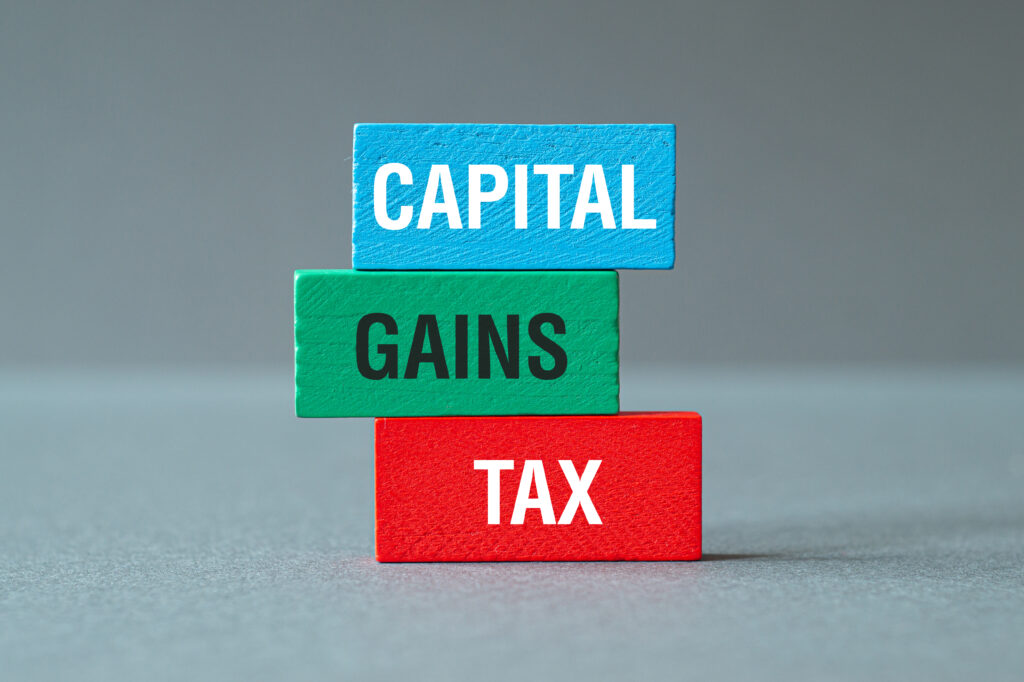When it comes to selling property in the UK, understanding the implications of Capital Gains Tax (CGT) is crucial. This tax can significantly affect your financial outcomes, so it’s important to know when it applies and how to manage it effectively. In this article, we’ll explore what Capital Gains Tax is, how it applies to property, and what you need to consider if you’re thinking about selling.

What is Capital Gains Tax?
Capital Gains Tax is a tax on the profit (gain) made when you sell or dispose of an asset that has increased in value. It’s the gain that’s taxed, not the amount of money you receive. This tax can apply to personal possessions, business assets and, notably, property. Understanding the rules around CGT is essential for anyone looking to sell property, as it can have a substantial impact on the final proceeds.
When Does Capital Gains Tax Apply to Property?
CGT applies to property in various scenarios, primarily when selling a second home or buy-to-let properties. It typically does not apply to your main residence due to Private Residence Relief, which exempts you from CGT when you sell the home you live in. However, there are conditions and exceptions to this rule.
Main Residence Exemption
Your main residence is usually exempt from CGT under the Private Residence Relief. To qualify, the property must be your main home for the entire period you owned it. Additionally, the grounds, including all buildings within, must not exceed 5,000 square metres (about 1.25 acres). Any part of the home used exclusively for business purposes will not qualify for the exemption.
Second Homes and Rental Properties
If you own a second home, such as a holiday home or a property that you rent out, CGT will likely apply when you sell it. The gain is calculated as the difference between the selling price and the original purchase price, less any allowable expenses, such as the cost of improvements and legal fees.
Inherited Property
Inherited property is also subject to CGT when sold. The gain is calculated based on the property’s value at the time of inheritance. This means if the property has appreciated in value since it was inherited, CGT will apply to the difference.
Calculating Capital Gains Tax
Calculating CGT can be complex, involving several steps and allowances. Here’s a simplified overview:
Step 1: Determine the Gain
First, calculate the gain by subtracting the purchase price (or value at inheritance) from the sale price. Deduct any allowable expenses, such as estate agent fees, legal costs and the cost of significant improvements.
Step 2: Apply Reliefs and Allowances
Various reliefs and allowances can reduce your taxable gain. The most significant is the annual CGT allowance, which allows you to make a certain amount of profit tax-free each year. For the 2024-2025 tax year, this allowance is £3,000.
Step 3: Apply the CGT Rate
The rate of CGT depends on your total taxable income and the size of the gain. If you are a basic rate taxpayer, you will pay 18% on property gains. If you are a higher or additional rate taxpayer, the rate increases to 28%.
Reporting and Paying Capital Gains Tax
Once you’ve calculated the CGT due, you must report it to HMRC. This can be done through your Self Assessment tax return or by using the real-time Capital Gains Tax service. You must report and pay any tax due within 60 days of the sale of the property.
Strategies to Minimise Capital Gains Tax
There are several strategies to reduce the amount of CGT you owe:
Use of Allowances
Make full use of your annual CGT allowance by planning property sales across different tax years. This can spread the gains and keep each within the allowance limit.
Joint Ownership
If you own property jointly, each owner can use their CGT allowance, effectively doubling the amount of gain that can be tax-free.
Consideration of Timing
Timing the sale of your property can also make a difference. Selling during a tax year when your income is lower could result in a lower CGT rate.
Making Use of Losses
If you have other investments that have lost value, you can offset these losses against your gains, reducing your overall taxable amount.
Understanding Capital Gains Tax and how it applies to property is essential for making informed financial decisions. Whether you’re selling a second home, an inherited property, or a buy-to-let investment, being aware of your CGT obligations can help you plan effectively and avoid unexpected tax bills. If you’re considering selling a property and need professional advice, Belvoir estate agents are here to help. Contact us today to speak with one of our property experts and ensure you navigate the process with confidence. The information contained in this article is for information purposes and should not be relied upon, it is advisable to seek professional financial advice that will be specific to your circumstances.






